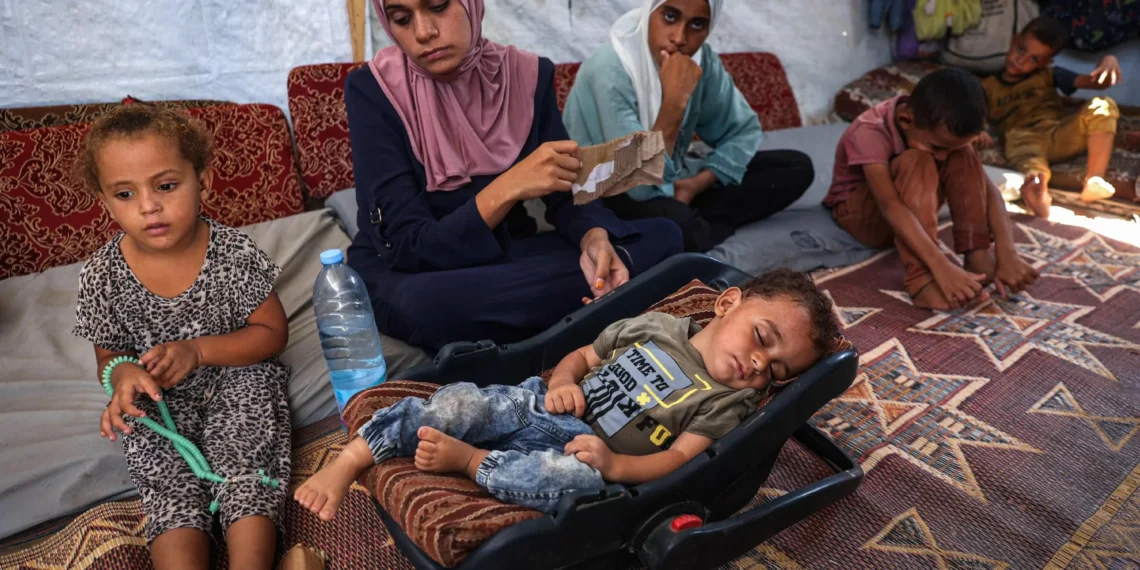The World Health Organization (WHO) has announced that Israel has agreed to limited humanitarian pauses in Gaza to allow the vaccination of hundreds of thousands of Palestinian children. This is a significant step towards ensuring the health and well-being of the children in the region.
According to WHO, the humanitarian pauses will allow for the safe and efficient delivery of vaccines to children in Gaza, who have been living in a state of constant conflict and turmoil. The organization has been working tirelessly to negotiate with all parties involved to secure this much-needed agreement.
The vaccination campaign will target children under the age of five, who are at a higher risk of contracting deadly diseases due to the deteriorating health infrastructure in Gaza. The campaign will cover a range of diseases, including polio, measles, and rubella, and will be carried out in collaboration with the Palestinian Ministry of Health.
The decision to allow humanitarian pauses for vaccination is a commendable move by Israel, and it reflects their commitment to the well-being of all children, regardless of nationality or political affiliation. This gesture also highlights the importance of international cooperation in times of crisis and the critical role of organizations like WHO in facilitating such cooperation.
The conflict in Gaza has had a devastating impact on the lives of children, who are the most vulnerable in any crisis. The ongoing violence has disrupted the delivery of essential services, including healthcare, leaving children at risk of preventable diseases. The vaccination campaign will not only protect children from deadly diseases but also provide a sense of normalcy in their lives, which has been disrupted by the conflict.
WHO has also emphasized the need for continued access to essential health services in Gaza, even during times of conflict. The organization has been working closely with the Palestinian Ministry of Health to ensure the continuity of healthcare services, including the provision of essential medicines and medical supplies.
The humanitarian pauses will also allow for the safe movement of healthcare workers and the delivery of medical supplies to Gaza. This is crucial in ensuring the effective implementation of the vaccination campaign and the provision of other essential health services to the people of Gaza.
The agreement between Israel and WHO is a significant step towards addressing the health crisis in Gaza. However, it is essential to note that this is just the first step, and more needs to be done to ensure the long-term health and well-being of the children in the region. The conflict has taken a toll on the mental health of children, and it is crucial to provide them with the necessary support and resources to cope with the trauma they have experienced.
Moreover, the humanitarian pauses should not be limited to vaccination campaigns but should also allow for the delivery of other essential supplies, such as food, water, and shelter. The people of Gaza are in dire need of humanitarian aid, and it is the responsibility of the international community to ensure that their basic needs are met.
In conclusion, the agreement between Israel and WHO to allow humanitarian pauses for the vaccination of Palestinian children in Gaza is a significant development that will save the lives of many children. It is a testament to the power of international cooperation and the commitment of all parties involved to prioritize the health and well-being of children in times of crisis. However, more needs to be done to address the long-term health needs of the people of Gaza, and the international community must continue to work together to provide the necessary support and resources. Let us hope that this agreement will pave the way for a brighter and healthier future for the children of Gaza.







